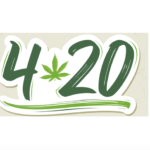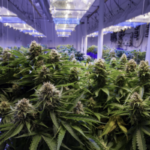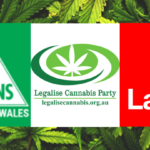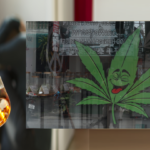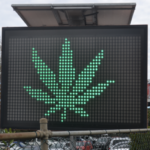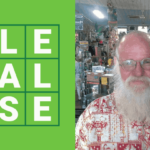Are Bongs Legal In New South Wales?
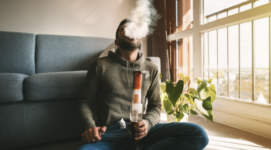
Whilst most people are aware the possession of cannabis is a criminal offence in New South Wales, it is perhaps less known that possessing equipment for the administration of a prohibited drug (which can include a bong), as well as selling, supplying or displaying waterpipes (which can also include bongs) and ice pipes are also crimes in our state.
Here’s what you need to know.
What is a bong?
A ‘bong’ is a filtration device generally used for smoking cannabis or tobacco.
The standard bong has the following key elements:
- A bowl where cannabis is packed into and heated to produce smoke, this smoke then travels down a stem to the water chamber.
- A water chamber is, as the name suggests, a reserve of water at the bottom of the bong which allows the smoke to cool.
- A mouthpiece is then used, which allows a user to inhale the smoke cooled from the water chamber.
- Many bongs also contain a ‘carb’ which is a tiny hole that allows the user to regulate when they inhale the cannabis smoke.
Bongs have an ancient history, dating back to around 400BC when Iranian-Eurasian Scythian tribes used ceramic bongs for both cannabis and opium consumption.
The main reason that bongs are used is that by cooling the smoke prior to inhalation, a user feels less of a harsh ‘hit’ to their lungs, allowing for a better experience.
The phrase ‘bong’ comes from the Thai word “baung”, which means cylindrical wooden bamboo tube, a common attachment to the mouthpieces of older bongs.
The offence of possessing equipment for the administration of prohibited drugs
Possessing equipment for the administration of a prohibited drug is an offence under section 11 of the Drug Misuse and Trafficking Act 1985, which carries a maximum penalty of 2 years in prison.
To establish the offence, the prosecution must prove beyond reasonable doubt that:
- You possessed an item of equipment, and
- The item was for use in the administration of a prohibited drug.
Such equipment may include:
- A bong used to smoke cannabis,
- Rolling papers if they are used to smoke cannabis,
- A pipe used to smoke hashish,
- A pipe used to smoke crystal methamphetamine (or ‘ice’), or
- A pressurised lighter used to smoke crystal methamphetamine.
The section makes clear that it is not unlawful to possess a hypodermic syringe or needle.
You are not guilty of the offence if you were a medical practitioner, dentist, vet, pharmacist, registered nurse, registered midwife or other profession prescribed by the regulations and the item was for use in the ordinary course of your profession, or if you were licensed or authorised to possess the equipment under the Poisons and Therapeutic Goods Act 1966, or by the Secretary of the Department of Health.
A NSW approval is required when prescribing Schedule 8 medicine:
- to a drug dependent person (for registered/unregistered medicine),
- that is compounded (only medical practitioners can be authorised to prescribe compounded medicines), or
- for use in a clinical trial.
An approval from NSW Health is not needed to prescribe a Schedule 4 cannabis medicine.
You are also not guilty if the item was for use in the administration of a lawfully prescribed or supplied drug.
Cannabis Cautioning Scheme
For first-time offenders who are caught with cannabis for the first time, the police could issue a caution instead of charging the individual with an offence that could go on their record or end up in a monetary fine. A police caution is a formal warning that allows individuals to avoid a criminal record for a minor offence.
The Cannabis Cautioning Scheme in New South Wales is for adults who commit minor offences, such as use or minor drug possession. The scheme includes:
- Using cannabis,
- Possessing <15 grams of cannabis, or
- Possessing cannabis-related paraphernalia, like a bong or a pipe.
The offence of selling, supplying or displaying waterpipes and ice pipes
The sale, supply or display of waterpipes and ice pipes is an offence under section 11A of the Drug Misuse and Trafficking Act 1985, which carries a maximum penalty of 2 years in prison.
To establish the offence, the prosecution must prove beyond reasonable doubt that:
You sold a waterpipe or ice pipe, or you supplied a waterpipe or ice pipe in the course of, or in connection with, a commercial transaction, or you displayed a waterpipe or ice pipe in a shop or near, but in connection with, a shop.
A waterpipe is defined as:
- A device capable of being used for the administration of a prohibited drug by means of the drawing of smoke or fumes resulting from the heating or burning of the drug through water or another liquid, or
- A device that is apparently intended to be a device described above, but is not capable of being so used because it needs adjustment, modification or addition and includes a device known as a bong.
An ice pipe is defined as:
- A device capable of being used for the administration of a prohibited drug by means of the drawing of smoke or fumes resulting from the heating or burning of the drug in a crystal or powder form, or
- A device that is apparently intended to be a device described above, but is not capable of being so used because it needs adjustment, modification or addition and includes a device known as a crack pipe.
A shop includes:
- Part of a building or place used for the sale of goods or supply in the course of commercial transactions of goods, or
- A stall or other structure used for sale or supply of goods at a market or elsewhere.
You are not guilty of the offence of displaying the goods if you are able to establish ‘on the balance of probabilities’ that the display was not for the purpose of a commercial transaction.
It is immaterial whether the waterpipe or ice pipe was used or intended to be used for a purpose other than the administration of a prohibited drug.
Should we decriminalise the bong?
Although the possession, sale and supply of bongs is clearly criminalised in New South Wales – these laws are rarely enforced.
It is not uncommon to see retailers openly advertising bongs for sale in NSW with little concern about police knocking on their door. Given this state of affairs, many have argued that it’s time to decriminalise bongs in NSW to reflect current community attitudes.
In 2018, the Eros Association*, which represents adults-only retailers including ‘smoke shops’, called for a national change aimed at ‘unbanning the bong‘ across Australia. It’s certainly the case that given increasing calls to legalise cannabis in NSW, a change in laws regarding ‘drug equipment’ is also likely to change.
*In full disclosure, the author of this article is a former policy advisor for the Eros Association

